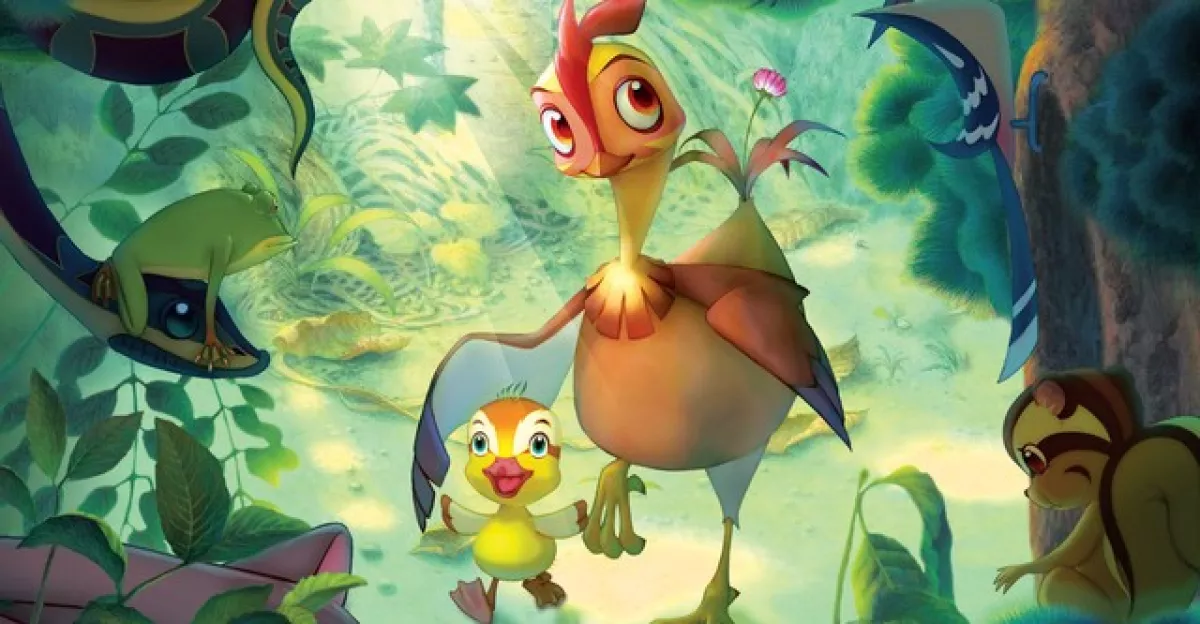How to appear on screen without ever visiting movie set South Korea’s latest achievements pioneer AI in film production
South Korea is showcasing the potential of AI in filmmaking, particularly in animation. On January 22, 2025, the renowned South Korean animated film Leafie, a Hen into the Wild was re-released in theaters after being digitally remastered using AI. The AI company Inshorts employed its AI Super-Scaler technology to enhance the film in 4K, noting that AI significantly cut both the time and cost involved in the remastering process. While Hollywood has already explored AI for editing classic films, South Korea's latest endeavors open up new possibilities for AI in ways previously considered unconventional.
Originally released in 2011, Leafie follows the emotional journey of a chicken striving to better her life and became the highest-grossing Korean animated film domestically, while also achieving major international success. An article by the Korean Herald highlights that the AI restoration of the film brings newfound clarity, with nature scenes—forests, lakesides, and snowy landscapes—now displaying vibrant, natural colors. Fine details such as the intricate patterns in the characters’ eyes and the texture of their beaks are enhanced without appearing too artificial.
Gone are the days of painstaking pixel-by-pixel editing. AI models now draw from extensive online video archives—both open-source and studio collaborations—to understand what pristine footage should look like. These models can process entire films in one go, analyzing each frame and using pattern recognition to restore missing details with remarkable accuracy.
In an interview with a local broadcaster, Inshorts’ founder and CEO, Andy Lee, claimed that the company’s AI scaling technology "cuts time by 10 times and costs by half."

This is not the first venture into AI-driven filmmaking for South Korea's film industry, also known as "Hallyuwood". The short film It’s Me, Mun-hee, released on December 24, 2024, featured veteran actress Na Mun-Hee, who never set foot on the film's set, as AI was used to recreate her likeness.
Even bolder was the AI-driven short M Hotel, which premiered in December. This 6.5-minute film, entirely created through generative AI, tells the story of a homeless person who discovers a mysterious hotel key. The project has received international acclaim, making the shortlist at the Venice Reply AI Film Festival and winning awards at the Busan International Artificial Intelligence Film Festival, the AMT International Film Festival in New York, and the Cannes World Film Festival. Remarkably, it took just under a month for four CJ ENM AI specialists to complete the entire production using over 10 different AI tools.
These experimental shorts share some similarities—they are all under 20 minutes long and feel more like technological showcases than traditional films. However, it is the AI-generated human faces that have drawn attention. Critics quickly pointed out that the characters’ appearances seemed unnaturally smooth, with skin textures that looked too flawless. Elderly characters, in particular, seemed overly polished, creating an uncanny and uncomfortable feeling for some viewers.
This feedback echoes similar concerns in Hollywood, where AI remasters of classics like James Cameron's True Lies and The Abyss received mixed reactions after undergoing machine-learning enhancements last year.
By Nazrin Sadigova








